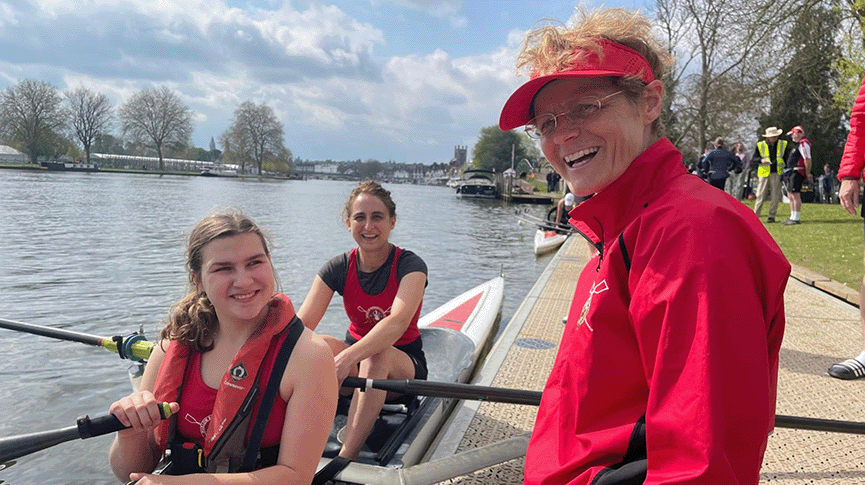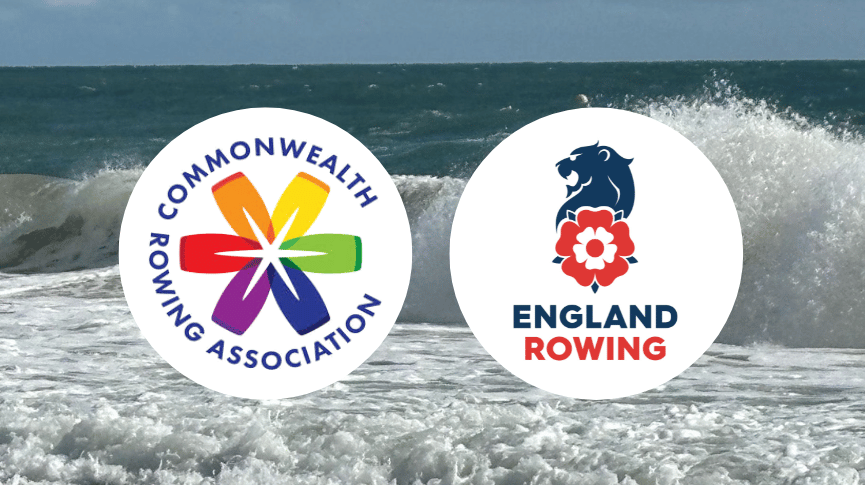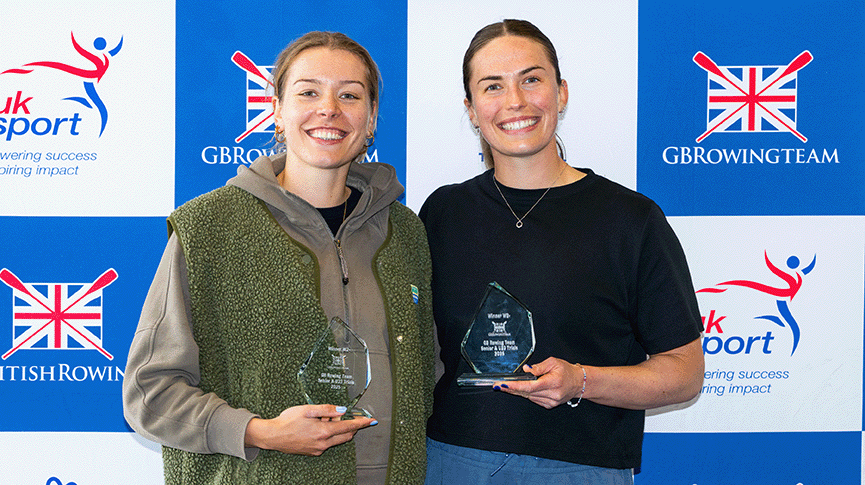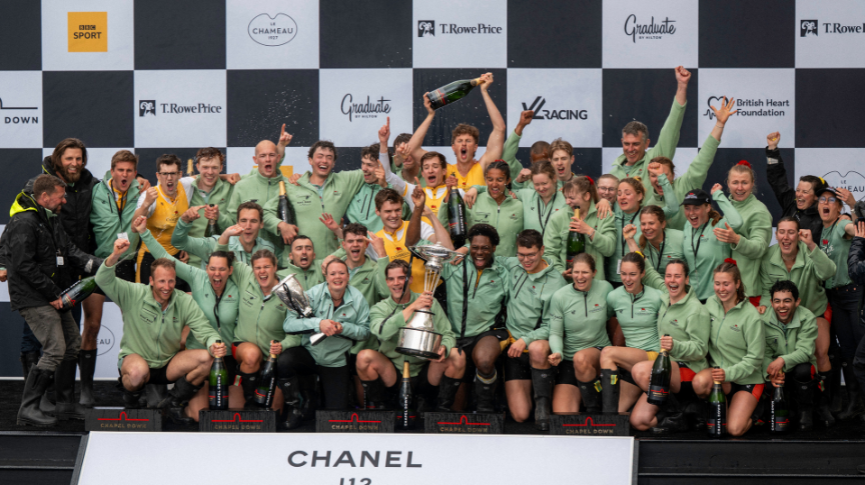Biography of legendary oarsman and coach ‘Jumbo’ Edwards launched
Water’s Gleaming Gold tells the story of the 1932 double Olympic gold medalist who survived ditching the RAF bomber he was piloting off the Cornish coast, and later coached Oxford to success after a string of defeats in the Boat Race
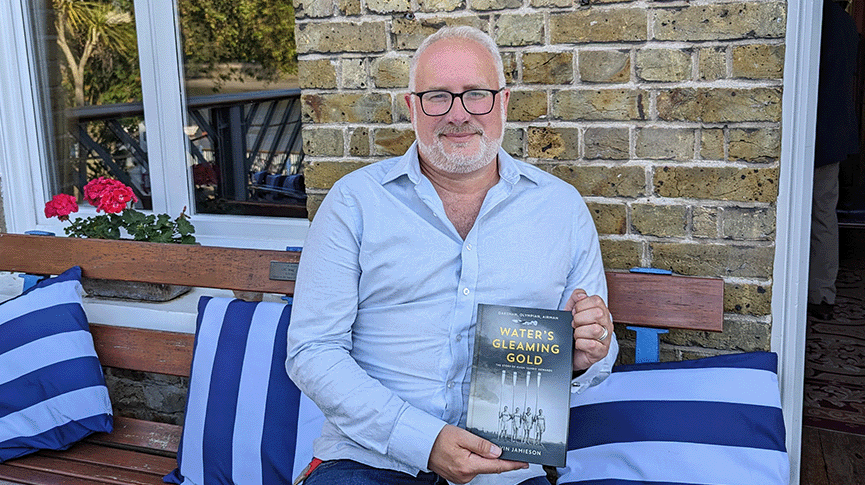
Author Gavin Jamieson at the book's launch held at Jumbo's beloved London RC
Rowing biographies are sufficiently rare that practically any new contribution to the history of our sport is worth attention for that reason alone. In this case, though, rowing has gained a valuable account that is also a well-written, rip-roaring rollercoaster read that anyone would enjoy.
Author Gavin Jamieson, whose wife is Jumbo’s granddaughter, has made the most of access to family archives to reveal fascinating details behind the well-documented headlines of Jumbo’s life from his birth in 1906 to his sudden death in 1972.
Those in rowing who have already heard of Hugh ‘Jumbo’ Edwards are most likely to think of him as a coach. His years behind the megaphone, though, formed only the third main phase of his life following his career as an oarsman himself, and then his time as an RAF officer before, during and after World War II. As the book shows, his experiences as a rower and then as an aviator – including a substantial period training new pilots – were formative to his approach as an inspirational and innovative coach.
In outline, Jumbo learned to row at Westminster School and continued in the sport at Oxford. After collapsing at Chiswick Steps during in his first Boat Race in 1926, he was told he should never row again for medical reasons. This diagnosis turned out to be incorrect, and may have been motivated by the college authorities wanting him to pay more attention to his studies. Undaunted, and after leaving the university a few months later for reasons that would not apply today, he joined London RC. There he embraced the ‘revolutionary’ rowing style coached by Steve Fairbairn. It was here that he acquired his nickname after a weigh-in when he was found to have gained weight and one of his crewmates declared, “You are a lump; you are nothing but a jumbo”.
In 1930, Jumbo lost the Boat Race again – back at Oxford, his transgressions forgotten – but won both the Grand and the Stewards at Henley with London RC. The following year, incredibly, he went one better, retaining both events and winning the Goblets too.
He was then selected in the pair for the 1932 Olympic Games in Los Angeles and finished up racing in the coxless four too, when one of that crew fell ill; the cost of sending athletes to the US during the great depression meant that ‘spares’ were out of the question’. Winning both events on the same day was an incredible feat and cemented his status as one of Britain’s greatest oarsman.
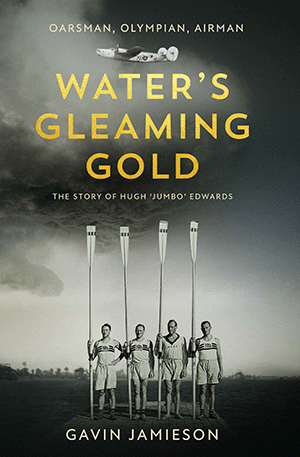 Following eventful active service during the war, he first tried his hand at coaching in 1948 when the RAF began rowing. After successfully guiding a raw crew to the final of the Thames Cup, he was first invited to coach Oxford for the 1949 Boat Race. Although Oxford lost for the third time in succession that year, it was only by the narrowest of margins after an epic side-by-side right to the end. In 1952, Jumbo finally achieved his first victory at the Boat Race, after another historic battle. Perhaps most impressive was that he managed to coach them despite being stationed in Germany at the time, a constraint he got round by borrowing a plane and flying himself back to Oxford every weekend through the winter.
Following eventful active service during the war, he first tried his hand at coaching in 1948 when the RAF began rowing. After successfully guiding a raw crew to the final of the Thames Cup, he was first invited to coach Oxford for the 1949 Boat Race. Although Oxford lost for the third time in succession that year, it was only by the narrowest of margins after an epic side-by-side right to the end. In 1952, Jumbo finally achieved his first victory at the Boat Race, after another historic battle. Perhaps most impressive was that he managed to coach them despite being stationed in Germany at the time, a constraint he got round by borrowing a plane and flying himself back to Oxford every weekend through the winter.
Jumbo went on to coach Oxford to four more wins. He also experimented with training techniques – introducing interval training successfully, and with equipment – including longer blades (which he admitted lost them the 1961 Boat Race) and ‘spade’ spoons. His knowledge of aeronautics played an important role in his attempts to make blades more streamlined. This is the kind of detail that makes the book particularly fascinating for members of the rowing community. Another great nugget that even rowing afficionados are unlikely to know is his family’s connection to the trophy that became the Prince of Wales Challenge Cup at Henley Royal Regatta.
What many may consider would have been the pinnacle of Jumbo’s coaching career – coaching GB eight at the 1960 Rome Olympics (the men’s eight, of course, because women’s events weren’t included in the Olympic programme until 1976) – turned out to be a disappointment when the crew was eliminated in the repechage. British rowing, indeed British sport in general, had become rather stuck in the past in international terms. Nevertheless, Jumbo continued to inspire the oarsmen he coached until 1970.
The book’s title comes from a poem entitled A Racing Eight by a little-known poet, which Jamieson found written out amongst Jumbo’s papers. It includes the stanza ‘A racing eight of perfect mould/True to the builder’s law/That takes the water’s gleaming gold/Without a single flaw.’ With gold medals having played such an important part in his life, it is an excellent choice.
Water’s Gleaming Gold publishes on 19 June 2023 and is available direct from the publisher and at all good bookshops and online booksellers.



